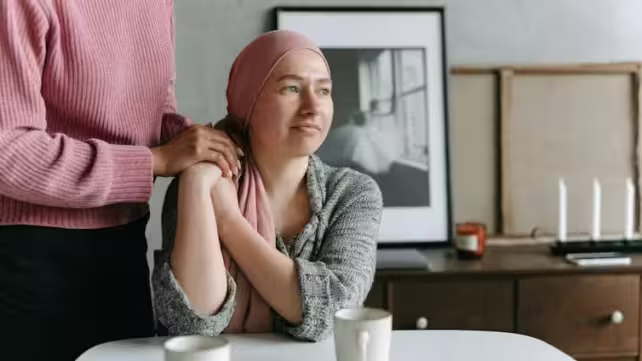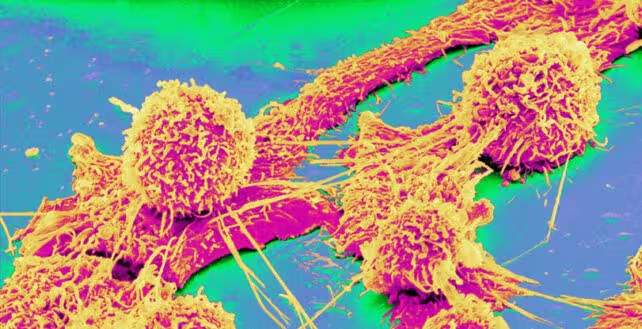4 Minutes
Bowel Cancer in Australia: A Shifting Landscape
Bowel cancer, also known as colorectal cancer, remains a significant health concern in Australia. Each year, it affects over 15,000 Australians, making it the nation's fourth most commonly diagnosed cancer and the second leading cause of cancer-related deaths. While the vast majority of cases develop in adults over 50, recent data highlights a troubling rise in the number of younger individuals diagnosed with bowel cancer. International comparisons show that Australia reports among the highest rates of young-onset bowel cancer worldwide.
National Screening Programs and Their Impact
A major success in Australia's fight against bowel cancer has been the implementation of the National Bowel Cancer Screening Program, launched in 2006. Through this initiative, adults between 50 and 74 years old receive biennial screening kits mailed directly to their homes. These kits use a faecal occult blood test (FOBT) to detect tiny, often invisible traces of blood in stool—a possible early sign of cancer or precancerous lesions. Early detection through this non-invasive screening has been linked to increased survival rates and a steady decline in overall bowel cancer incidence among older adults.
Despite its proven benefits, the screening program's participation rate remains low, hovering at about 40%. Experts agree that raising participation could further reduce mortality and the long-term burden of this disease.

Concerning Trends Among Younger Australians
While national screening efforts contribute to falling cancer rates among older Australians, the incidence of bowel cancer among those under 50 is on the rise. An analysis of data spanning decades demonstrates a steady increase in both bowel and rectal cancers in this cohort since the early 1980s. Emerging studies, including recent pre-publication findings, estimate that individuals born in the 1990s now face a two to threefold higher risk of developing bowel cancer compared to those born in the 1950s.
This trend is not unique to Australia—rising rates of early-onset bowel cancer have been observed globally. However, the magnitude of the increase in Australia is particularly noteworthy and has prompted growing concern among medical professionals and public health officials.
Potential Factors Behind Rising Young-Onset Bowel Cancer
The reasons behind this upward trend remain complex and not fully understood. Several risk factors have been implicated, including:
- Diet and Lifestyle: High consumption of red and processed meats, low dietary fiber, sedentary behavior, and increased rates of obesity have all been statistically associated with a heightened risk of colorectal cancer.
- Challenges in Studying Diet: Determining causation in diet-related studies is difficult, as long-term dietary tracking and strict randomization, required for robust evidence, are rarely feasible in large populations.
- Gut Microbiome and Infections: Recent research is exploring how early-life infections, specifically with certain strains of Escherichia coli (E. coli), might alter DNA and predispose individuals to cancer. Shifts in the gut microbiome—the diverse microorganisms inhabiting our intestines—are also being investigated as a potential factor in rising cancer rates.
While these hypotheses are promising, more research is needed to definitively explain the increase in bowel cancer among younger adults.

Prevention and Early Detection: What Can Be Done?
Until more is understood about the specific causes, experts urge a focus on prevention, vigilance, and participation in screening programs where eligible. Key recommendations include:
- Awareness of Symptoms: Young adults should consult a healthcare professional promptly if they notice blood in their stool, unexplained abdominal pain, or significant changes in bowel habits—especially if these symptoms are new or persistent.
- Expanded Screening Access: As of 2024, Australians aged 45–49 can request a bowel cancer screening kit, extending early detection to an even broader age group.
- Lifestyle Modifications: Maintaining a healthy weight, engaging in regular physical activity, consuming more fiber-rich foods such as fruits and vegetables, and limiting red and processed meat can all contribute to lowering bowel cancer risk.
- Encouraging Participation: For those aged 50 and above, promptly using the mailed screening kits is vital. Increasing engagement with the National Bowel Cancer Screening Program remains one of the most impactful ways to curb this disease.
Conclusion
The upward trend in young-onset bowel cancer is an emerging public health issue that warrants further scientific investigation and proactive intervention. While the underlying causes remain under study, Australians can take steps now—by recognizing early symptoms, participating in screening programs, and adopting healthier lifestyles—to reduce their personal risk. Continued investment in research and public education will be crucial to reversing this concerning trend and protecting the health of future generations.
Source: theconversation



Comments